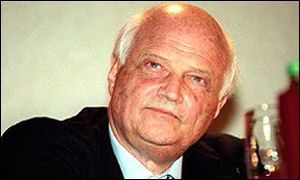A Quote by Charles Churchill
The villager, born humbly and bred hard,
Content his wealth, and poverty his guard,
In action simply just, in conscience clear,
By guilt untainted, undisturb'd by fear,
His means but scanty, and his wants but few,
Labor his business, and his pleasure too,
Enjoys more comforts in a single hour
Than ages give the wretch condemn'd to power.
Related Quotes
You can t, in sound morals, condemn a man for taking care of his own integrity. It is his clear duty. And least of all can you condemn an artist pursuing, however humbly and imperfectly, a creative aim. In that interior world where his thought and his emotions go seeking for the experience of imagined adventures, there are no policemen, no law, no pressure of circumstance or dread of opinion to keep him within bounds. Who then is going to say Nay to his temptations if not his conscience?
The master in the art of living makes little distinction between his work and his play, his labor and his leisure, his mind and his body, his information and his recreation, his love and his religion. He hardly knows which is which. He simply pursues his vision of excellence at whatever he does, leaving others to decide whether he is working or playing. To him he's always doing both.
Socrates was the chief saint of the Stoics throughout their history ; his attitude at the time of his trial, his refusal to escape, his calmness in the face of death , and his contention that the perpetrator of injustice injures himself more than his victim, all fitted in perfectly with Stoic teaching. So did his indifference to heat and cold, his plainness in matters of food and dress, and his complete independence of all bodily comforts.
None has more frequent conversations with a disagreeable self than the man of pleasure; his enthusiasms are but few and transient; his appetites, like angry creditors, are continually making fruitless demands for what he is unable to pay; and the greater his former pleasures, the more strong his regret, the more impatient his expectations. A life of pleasure is, therefore, the most unpleasing life.
Man in his raw, natural state as he comes from the womb is morally and spiritually corrupt in disposition and character. Every part of his being-his mind, his will, his emotions, his affections, his conscience, his body-has been affected by sin (this is what is meant by the doctrine of total depravity)
Depending on the year or the therapist he was seeing, he'd learned to ascribe just about every facet of his character as a psychological reaction to his parents' fighting: his laziness, his overachieving, his tendency to isolate, his tendency to seduce, his hypochondria, his sense of invulnerability, his self-loathing, his narcissism.







































